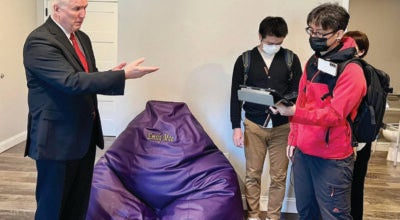Stanly gains $1.255 million to fight opioid epidemic
Published 8:49 am Friday, October 11, 2019
Stanly County has received a major financial boost in its battle to combat the opioid epidemic.
The Center for Prevention Services in Charlotte was recently awarded a five-year, $1.25 million Partnership for Success Grant to serve Stanly. The grant, funded by the Substance Abuse and Mental Health Services Administration, began this month and will run through Sept. 30, 2024.
CPS provides primary prevention education services to Mecklenburg, Cabarrus, Rowan, Stanly, Union and Davidson counties.
The grant will provide approximately $260,000 per year to fund new efforts in Stanly aimed at reducing substance abuse.
CPS will administer a Youth Drug Survey to students in the sixth, eighth, tenth and twelfth grades next spring. The survey will be voluntary, the information the students share will be anonymous and schools can opt out if they choose.
The data will help better inform service providers about the substance abuse issues in the schools and the magnitude of the issues. The survey has been administered to Mecklenburg County students for 30 years.
The survey includes questions about how often students use alcohol, marijuana, cigarettes (including e-cigarettes) and prescription drugs.
CPS grant manager Neetu Verma said CPS has received approval from Stanly County Schools for administering the survey next year. Parents will also receive a permission form they can sign if they do not want their children participating in the survey.
The survey will be administered to the students every other year.
Teachers and counselors from middle and high schools will be given the opportunity to be trained in the Botvin LifeSkills Training program.
It is an evidence-based prevention program backed by more than 30 scientific studies that has been shown to be effective in reducing alcohol, tobacco, marijuana and other drug use. Studies show the program also helps reduce violence and school drop-out and helps with student academic performance.
The program has been used with youth in all 50 states and 39 other countries.
At least two teachers from middle and high schools will be trained in the program by Botvin trainers. The program curriculum for middle school students will be different than the curriculum for high school students.
The tentative plan is for middle school teachers to be trained next year and high school teachers the year after.
The Youth Drug Survey will provide CPS and school officials with baseline data which will then better inform the lifeskills training program, Verma said.
CPS is working to expand membership in Project Lazarus, a group comprised of public health, health care, law enforcement, mental health personnel and concerned citizens to combat drug abuse.
Verma said the goal is to add five members next year.
The coalition includes CPS, Cardinal Health Innovations, Monarch, Stanly County Schools, the health department, Stanly Community Christian Ministry, Atrium and others.
Public Health Education Specialist Wendy Growcock, who helps lead the group, said there are 63 people involved.
A youth coalition component will be added to Project Lazarus. This will include establishing a youth program coordinator who will help create a youth council comprised of high school students.
Youth Council members will implement alcohol and opioid prevention activities in schools, produce 30-second audio segments for local radio broadcast and be invited to attend local youth conferences. The students will also work with Project Lazarus.
Project Lazarus also wants to add parents, more law enforcement and people who work with youth organizations such as Boy Scouts or the YMCA.
“If you want to create an impact in your community, you have to have all folks at the table and you have to listen to everyone,” Verma said.
Verma will also train many of the Project Lazarus members on strategies created by the Community Anti-Drug Coalitions of America.
The grant will fund an extensive media campaign informing the public about drug use in the community. Information educating the public will soon go up on two billboards in Albemarle — one on U.S. Highway 52 and the other on N.C. Highway 24-27.
One billboard will feature information about “Talk. They Hear You,” an underage prevention campaign aimed to help parents talk with their children about the dangers of alcohol and drugs. The other billboard will feature information about “Lock Your Meds,” a national campaign designed to reduce prescription drug abuse.
CPS will also have at least three community events each year where officials will talk to parents about the importance of keeping alcohol, drugs and prescription medications locked up and away from young children. Medication lock boxes and disposable pouches will also be distributed to the public during the meetings.
Medical providers will be provided with information about chronic pain management techniques that reduce the use of opioids and decrease subsequent dependence.
The health department also recently received a $1 million grant from the Health Resources and Services Administration, an agency of the U.S. Department of Health and Human Services, to help fight the opioid problem.





